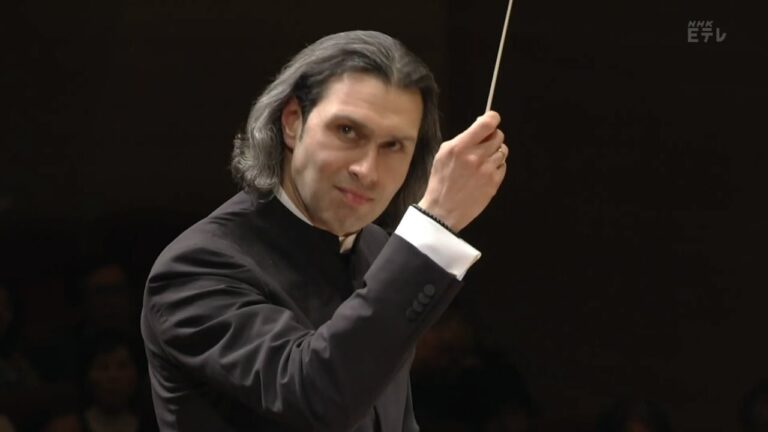This production of the operatic adaptation of the classic by Dmitri Tcherniakov, Vladimir Jurowski and their international team marks a first for the Bavarian State Opera.
Sergei Prokofiev decided to compose an opera based on Tolstoy’s War and Peace in 1941, while the Second World War was raging. After all, it is an epic tale of love and suffering in a time of war, specifically Napoleon’s invasion of Russia.
This production of the operatic adaptation of the classic by Dmitri Tcherniakov, Vladimir Jurowski and their international team marks a first for the Bavarian State Opera.
Munich’s first ever production of Sergei Prokofiev’s monumental opera War and Peace will coincide with the 70th anniversary of the composer’s death. The work is an adaptation of Leo Tolstoy’s eponymous novel, which has become a classic of world literature. The magnitude of Prokofiev’s undertaking is evident alone from its cast of some forty soloists. The Munich staging is the work of Dmitri Tcherniakov with Vladimir Jurowski at the rostrum.
Tolstoy’s War and Peace is an internationally acclaimed classic of Russian realism that interweaves the fortunes of various Russian noble families at the time of Napoleon’s invasion, and in doing so paints a detailed picture of a society and its mores at a particular point in history.
The first part of Prokofiev’s adaptation focuses on the romantic entanglements of the main character of Natasha Rostova. Prince Andrei Bolkonsky falls in love with Natasha at a ball, but their betrothal turns out to be doomed. Helene Bezukhova, wife of Pierre, introduces Natasha to her brother Anatol Kuragin, who sets out to seduce her. When he starts planning their elopement, Natasha is plunged into a crisis. The plan fails, however, and Pierre tells the mortified Natasha that Anatol is in any case already married. He also confesses his own love for her. Pierre challenges Anatol and orders him to leave Moscow in a scene that is rudely interrupted by the arrival of French troops
The second part of the opera follows the events at the Battle of Borodino, from which Napoleon emerges triumphant. In the third part of the opera, the people of Moscow resolve to force Napoleon into retreat by setting fire to their city. Pierre is arrested as one of the arsonists but miraculously escapes execution. His wife Helene is killed in the turmoil and Andrei Bolkonsky is among the fallen. But Pierre also learns that Natasha is still alive. Finally a general arrives to proclaim Russia’s victory.
Sergei Prokofiev took Tolstoy’s novel as the basis for a national opera project on an epic scale after Nazi Germany invaded the Soviet Union in 1941. The work had previously been considered too complex for an operatic adaptation. Prokofiev, however, eagerly threw himself into the ambitious experiment of translating the interweaving strands of the plot into music. The parallels between Napoleon’s attack on Russia and the fate of the Soviet Union in the Second World War provoked intense public debate at the time. Prokofiev finished his first version of the composition in 1943, after which the political powers that be demanded that parts of it be, reworked, whole scenes deleted or enlarged upon and passages of the libretto rewritten. The composer continued working on the opera right up to his death in 1953 and did not live to see it premiered in its entirety.
Today, a year after the Russian invasion of Ukraine, this quintessentially Russian opus has lost none of its relevance. Staging this particular work in the current climate was a challenge that the director Dmitri Tcherniakov and conductor Vladimir Jurowski and their team have had to face head on.











